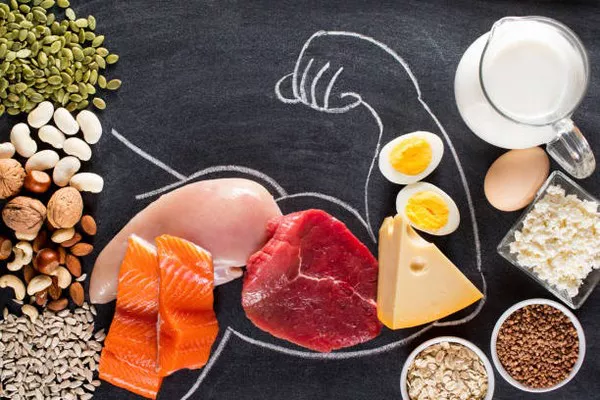Maintaining optimal energy levels for workouts is essential for performance, recovery, and overall fitness progress. The right foods can provide the necessary fuel to power through exercises and enhance endurance, strength, and stamina. This comprehensive guide will explore various foods that boost energy for workouts, why they are effective, and how to incorporate them into your diet.
Understanding the Role of Energy in Workouts
Before diving into specific foods, it’s important to understand how the body uses energy during physical activity. The primary sources of energy for the body are carbohydrates, fats, and proteins. Each of these macronutrients plays a unique role in energy production:
Carbohydrates: The body’s preferred source of energy, especially for high-intensity workouts. Carbohydrates are broken down into glucose, which is stored in muscles and the liver as glycogen.
Fats: A dense energy source that is primarily used during low-intensity, long-duration exercises.
Proteins: While not a primary energy source, proteins are crucial for muscle repair and growth.
Key Nutrients for Workout Energy
- Complex Carbohydrates
- Healthy Fats
- Lean Proteins
- Hydration
- Micronutrients
Top Foods That Give Energy for Working Out
Complex Carbohydrates
Oatmeal: Rich in fiber and slow-digesting carbohydrates, oatmeal provides sustained energy. It’s an excellent pre-workout meal option.
Sweet Potatoes: Packed with complex carbohydrates, vitamins, and minerals, sweet potatoes offer a balanced energy source.
Brown Rice: A whole grain that provides long-lasting energy due to its high fiber content.
Quinoa: A complete protein and complex carbohydrate source, quinoa is ideal for sustained energy.
Healthy Fats
Avocados: High in monounsaturated fats, avocados offer long-lasting energy and essential nutrients.
Nuts and Seeds: Almonds, walnuts, chia seeds, and flaxseeds provide healthy fats, protein, and fiber.
Olive Oil: A source of monounsaturated fats that can be added to meals for an energy boost.
Lean Proteins
Chicken Breast: A lean source of protein that aids in muscle repair and provides energy.
Greek Yogurt: High in protein and probiotics, it supports muscle recovery and energy levels.
Eggs: Rich in protein and essential amino acids, eggs are great for muscle repair and energy.
Tofu and Tempeh: Plant-based protein sources that provide essential nutrients for energy and muscle maintenance.
Hydration
Water: Essential for maintaining energy levels and preventing dehydration.
Coconut Water: A natural source of electrolytes that helps maintain hydration and energy.
Green Tea: Contains antioxidants and a small amount of caffeine, providing a gentle energy boost.
Micronutrients
Bananas: High in potassium, bananas help maintain electrolyte balance and provide quick energy.
Spinach: Rich in iron, spinach supports oxygen transport and energy production.
Berries: Packed with antioxidants and vitamins, berries provide a quick energy source and support recovery.
Pre-Workout Meal Ideas
Oatmeal with Berries and Nuts: A balanced meal that provides complex carbohydrates, healthy fats, and antioxidants.
Greek Yogurt with Honey and Banana: High in protein and carbohydrates, this meal offers sustained energy.
Chicken and Quinoa Salad: A protein-rich meal with complex carbohydrates for long-lasting energy.
Smoothie with Spinach, Banana, and Protein Powder: A nutrient-dense option that is easy to digest and provides quick energy.
See Also: What Does Eating A Calorie Deficit Mean
Post-Workout Nutrition
Protein Shake with Berries and Spinach: Supports muscle recovery and replenishes energy stores.
Sweet Potato and Chicken Bowl: Provides complex carbohydrates and lean protein for recovery and sustained energy.
Tofu Stir-Fry with Brown Rice: A plant-based meal that offers a balance of protein, carbohydrates, and healthy fats.
Timing Your Meals for Optimal Energy
Pre-Workout: Aim to eat a balanced meal 2-3 hours before working out. If you need a quick snack, opt for easily digestible foods like a banana or a smoothie 30-60 minutes before exercise.
During Workout: For workouts lasting longer than an hour, consider consuming a small amount of easily digestible carbohydrates, like a sports drink or energy gel.
Post-Workout: Eat a meal containing protein and carbohydrates within 30 minutes to 2 hours after exercising to support recovery and replenish glycogen stores.
Incorporating Energy-Boosting Foods into Your Diet
Meal Planning: Plan your meals and snacks around your workout schedule to ensure you have the energy you need for exercise and recovery.
Balanced Diet: Aim for a balanced diet that includes a variety of macronutrients and micronutrients to support overall health and energy levels.
Listen to Your Body: Pay attention to how different foods affect your energy levels and adjust your diet accordingly.
Supplements for Energy
Creatine: Helps increase energy production during high-intensity workouts.
Beta-Alanine: Reduces fatigue and increases exercise performance.
Caffeine: Provides a quick energy boost and enhances focus and endurance.
Common Mistakes to Avoid
Skipping Meals: Skipping meals can lead to low energy levels and poor workout performance.
Relying on Sugary Foods: While sugary foods can provide a quick energy boost, they often lead to energy crashes.
Ignoring Hydration: Dehydration can significantly impact energy levels and performance.
Conclusion
Fueling your body with the right foods is crucial for maintaining energy levels and optimizing workout performance. By incorporating a variety of complex carbohydrates, healthy fats, lean proteins, and hydrating fluids into your diet, you can ensure that you have the sustained energy needed for both high-intensity and endurance exercises. Remember to plan your meals around your workout schedule, listen to your body’s needs, and avoid common mistakes to make the most of your fitness routine.


